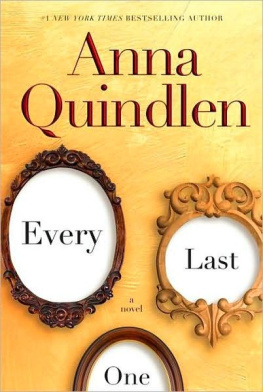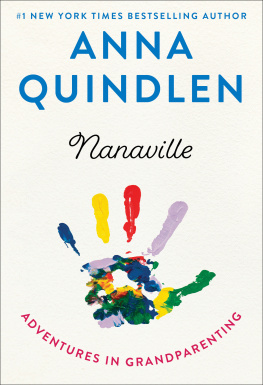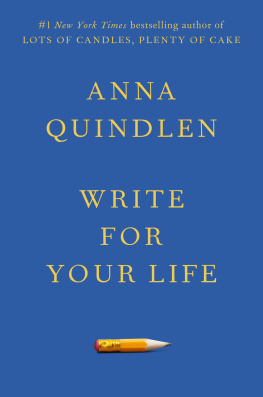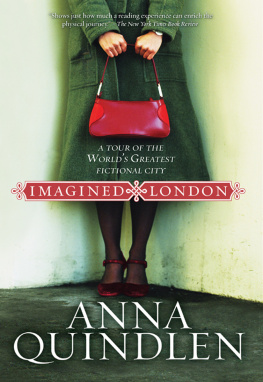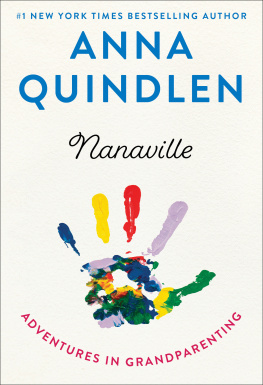Anna Quindlen - Object Lessons
Here you can read online Anna Quindlen - Object Lessons full text of the book (entire story) in english for free. Download pdf and epub, get meaning, cover and reviews about this ebook. year: 1997, publisher: Ballantine Books, genre: Prose. Description of the work, (preface) as well as reviews are available. Best literature library LitArk.com created for fans of good reading and offers a wide selection of genres:
Romance novel
Science fiction
Adventure
Detective
Science
History
Home and family
Prose
Art
Politics
Computer
Non-fiction
Religion
Business
Children
Humor
Choose a favorite category and find really read worthwhile books. Enjoy immersion in the world of imagination, feel the emotions of the characters or learn something new for yourself, make an fascinating discovery.

- Book:Object Lessons
- Author:
- Publisher:Ballantine Books
- Genre:
- Year:1997
- Rating:3 / 5
- Favourites:Add to favourites
- Your mark:
- 60
- 1
- 2
- 3
- 4
- 5
Object Lessons: summary, description and annotation
We offer to read an annotation, description, summary or preface (depends on what the author of the book "Object Lessons" wrote himself). If you haven't found the necessary information about the book — write in the comments, we will try to find it.
Object Lessons — read online for free the complete book (whole text) full work
Below is the text of the book, divided by pages. System saving the place of the last page read, allows you to conveniently read the book "Object Lessons" online for free, without having to search again every time where you left off. Put a bookmark, and you can go to the page where you finished reading at any time.
Font size:
Interval:
Bookmark:
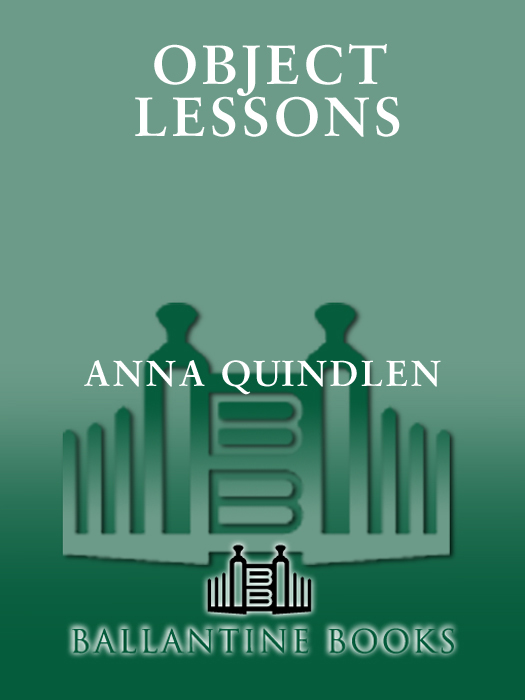
A DELICATE, FINELY CUT JEWEL OF A STORY
Anna Quindlens story of Maggie Scanlans twelfth year in a Westchester County suburb next to the Bronx is a charming, compassionate little masterpiecea story so compelling that one wishes at the end that it hadnt stopped and that one could learn more about Maggie, who, although she doesnt realize it, is a magic child on the way to being a magic woman . No man could have possibly spun this strong yet gossamer story of what happens to a child when all the clear boundaries of her existence collapse in a single month . Its a fine novel, a brilliant novel, a story that makes one wait eagerly for Anna Quindlens next novel.
The Philadelphia Inquirer
Warm and wry Accessible, thoughtful The novel has a quaint, old-fashioned feel. Decisions made early in life are irrevocable; unplanned pregnancy seals a couples fate. It isnt lure of freedom that pulls Maggie Scanlan, the thirteen-year-old protagonist, but the familiar bonds of her life, the lines drawn in her house, her neighborhood, her relationships . During the summer that the novel chronicles, all these lines are blurred, shifted, or destroyed.
San Francisco Chronicle
The characters are quirky and vividly drawn . The writing is lovely, and shows the humor and quiet insight that made Quindlens column beloved . Quindlen is an intelligent and imaginative writer.
The Boston Globe
Rich in the precisely observed With a quiet, sure touch, Quindlen carefully fits together the narrative pieces of individual desires, doubts, and development to create a satisfyingly complex mosaic of communal growth and change. There are dramatic eventsa death, a fire, a weddingbut the more important activity of this novel takes place within its characters, as they pursue self-knowledge and closer connections with those they love.
Newsday
GENEROUS WITH BOTH WISDOM AND COMPASSION.
The Orlando Sentinel
A perceptive and appealing account of one summer in the life of Maggie Scanlan, age twelve going on thirteen, idol of her Irish grandfathers eye, felt to be a kindred spirit by her Italian grandfather and a vulnerable witness not only to her own growing pains but also to those of father, mother, cousins, and friends, not to mention an aunt or two and assorted other acquaintances Delightful.
Chicago Tribune
Ms. Quindlen manages her score of characters with sure reins on detail and delineation . [Her] writing is clean and lively, action lines are kept taut, and payoffs are faithfully attended to . A solid job of storytelling, nicely seasoned with irony.
The Atlanta Journal-Constitution
The novel itself is an object lessona richly developed portrayal of life within an Irish-Catholic family . It is a triumphant story of overcoming stereotypes and prejudices, selfishness and loneliness, dissatisfaction and betrayal. And finding love . An accomplished, funny, heartwarming novel about a time and place we allwithout regard to age, religion, or regionwill recognize.
The Miami Herald
There is that warm, settled feeling, like the clasp of a childs hand while crossing the street, that Anna Quindlen has brought us back home, where human natureif not forgivenis understood.
The Detroit News
As graceful, humorous, and quietly insightful as her nonfiction Theres reality in every moment of Object Lessons, and it is both painful and pleasurable to visit those moments through Quindlens rendering of a time and place many readers can vividly recall.
Chicago Sun-Time
ALSO BY ANNA QUINDLEN
One True Thing
Thinking Out Loud
Living Out Loud
Black and Blue
How Reading Changed My Life
A Short Guide to a Happy Life
Blessings
Loud and Clear
Being Perfect
Rise and Shine
Good Dog. Stay.
Books for Children
The Tree That Came to Stay
Happily Ever After
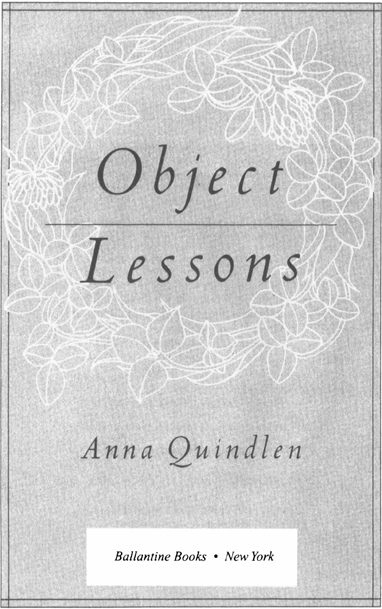
For my mother and my father

E VER AFTER, WHENEVER SHE SMELLED the peculiar odor of new construction, of pine planking and plastic plumbingpipes, she would think of that summer, think of it as the time of changes. She would never be an imprecise thinker, Maggie Scanlan; she would always see the trees as well as the forest. It would have been most like her to think of that summer as the summer her grandfather had the stroke, or the summer her mother learned to drive, or the summer Helen moved away, or the summer she and Debbie and Bruce and Richard became so beguiled by danger in the broad fields behind Maggies down-at-heel old house, or the summer she and Debbie stopped being friends.
All those things would be in her mind when she remembered that time later on. But they always came together, making her think of that summer as a time apart, a time which could never be forgotten but was terrible to remember: the time when her whole life changed, and when she changed, too. When she thought of herself and of her family, and of the town in which they lived, she thought of them torn in twoas they were before and as they were afterward, as though there had been a great rift in the earth of their existence, separating one piece of ground from the other. Her grandfather Scanlan always referred to life on earth and the life to come as here and hereafter: Youve got your here, and youve got your hereafter, little girl, he had said to her more than once. Take care of the first, and the second will take care of itself. Sometimes Maggie remembered those words when she remembered that summer. Afterward, all the rest of her life would seem to her a hereafter. Here and hereafter, and in between was that summer, the time of changes.
Perhaps she saw it all whole because of so many years of listening to her grandfather create labels, calling everything from bare legs in church to the Mass performed in English the Vatican follies, lumping all the bullets and the bombs and the bloodshed in his native Ireland under the heading of the Troubles. Or perhaps it was because Maggie needed to find a common thread in the things that happened, all the things that turned that summer into the moat which separated her childhood from what came after, and which began to turn her into the person she would eventually become. Change comes slowly, Sister Anastasia, her history teacher, had written on the blackboard when Maggie was in seventh grade. But after that summer, the summer she turned thirteen, Maggie knew that, like so much else the nuns had taught her, this was untrue.
Sometimes change came all at once, with a sound like a fire taking hold of dry wood and paper, with a roar that rose around you so you couldnt hear yourself think. And then, when the roar died down, even when the fires were damped, everything was different. People came to realize, when they talked about those years, that they were years which set one sort of America apart from another. Twenty years later they would speak of that time as beginning with the war, or the sexual revolution, or Woodstock. But Maggie knew it right away; she believed it began with the sound of a bulldozer moving dirt in her own backyard.
For that was the summer they began building the development behind the Scanlan house. That was the beginning.
Font size:
Interval:
Bookmark:
Similar books «Object Lessons»
Look at similar books to Object Lessons. We have selected literature similar in name and meaning in the hope of providing readers with more options to find new, interesting, not yet read works.
Discussion, reviews of the book Object Lessons and just readers' own opinions. Leave your comments, write what you think about the work, its meaning or the main characters. Specify what exactly you liked and what you didn't like, and why you think so.

